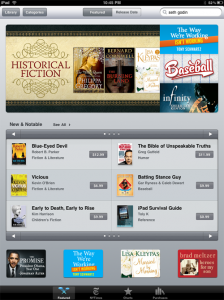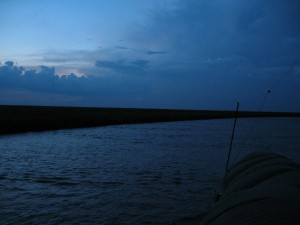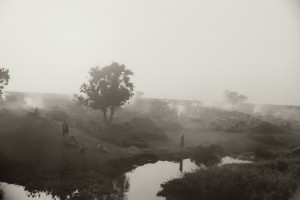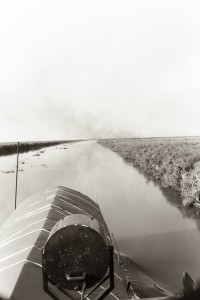 Travel guide author Steve Waters, writing at the Lonely Planet website, has this to say:
Travel guide author Steve Waters, writing at the Lonely Planet website, has this to say:
The Black Nile offers a fascinating and harrowing look at a country that continually makes headlines for all the wrong reasons. Morrison does his best to explain the historical events, tribal intricacies, external pressures and internal tensions that haunt Sudan today. Ok, not every traveller can flash their press card and jump a UN chopper, but then they normally wouldn’t end up under the bed sheltering from a firefight between local militias either. Morrison’s trip through Sudan becomes a quest for understanding; an attempt to unearth the truth behind his experiences as he interviews rebel leaders and local headmen, academics and taxi drivers, archaeologists and tour guides, all the time cadging his way a little further downstream.


 * “A masterful narrative of investigative reportage, travel writing, and contemporary history.” –
* “A masterful narrative of investigative reportage, travel writing, and contemporary history.” –  * The Black Nile “combines wit with deep reporting…Getting in and out of dangerous locations is clearly Morrison’s forte.” –
* The Black Nile “combines wit with deep reporting…Getting in and out of dangerous locations is clearly Morrison’s forte.” –  * The Black Nile “avoids the evangelical zeal and naïve prescriptions other Africa books fall victim to . . . Morrison teeters dangerously close to gunfights, disease, and run-ins with the authorities while relying on former rebels, proto-entrepreneurs, and crooked bureaucrats to get him through.” –
* The Black Nile “avoids the evangelical zeal and naïve prescriptions other Africa books fall victim to . . . Morrison teeters dangerously close to gunfights, disease, and run-ins with the authorities while relying on former rebels, proto-entrepreneurs, and crooked bureaucrats to get him through.” –  * “Adventure is only half the story in this marvelous book, and maybe the lesser half…A beautifully-written tale of an American on a journey to find out who else is out there, what they’re thinking, why they do what they do, and hey, check out that sunset with the cranes flying low across the horizon.” – Tom Robbins,
* “Adventure is only half the story in this marvelous book, and maybe the lesser half…A beautifully-written tale of an American on a journey to find out who else is out there, what they’re thinking, why they do what they do, and hey, check out that sunset with the cranes flying low across the horizon.” – Tom Robbins,  * “There’s enough grist in this excellent travelogue to craft a dozen killer Microkhan posts.” – Brendan Koerner,
* “There’s enough grist in this excellent travelogue to craft a dozen killer Microkhan posts.” – Brendan Koerner,  * “If you’re weary of cliched newsbites, misery memoirs and exoticised adventurism, and want more insight than disaster reporting or parched analyses can offer, this is a refreshing relief.” – Peter Verney, Sudan Update
* “If you’re weary of cliched newsbites, misery memoirs and exoticised adventurism, and want more insight than disaster reporting or parched analyses can offer, this is a refreshing relief.” – Peter Verney, Sudan Update
 Please check out
Please check out 

